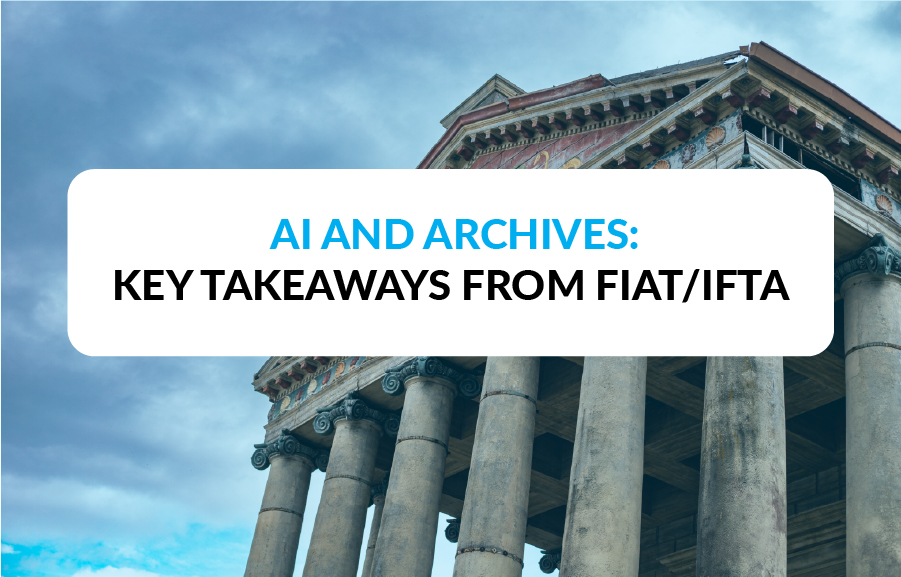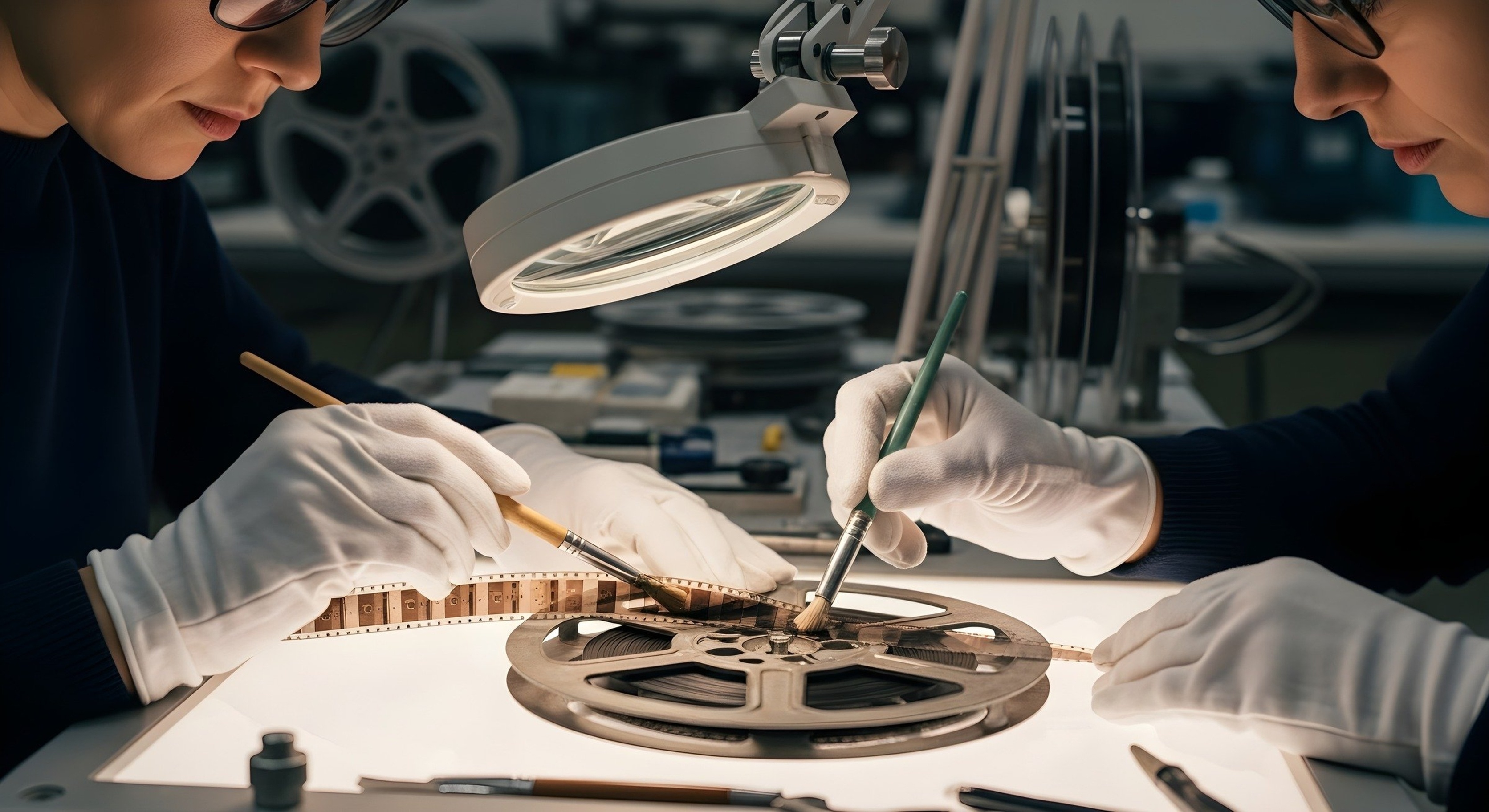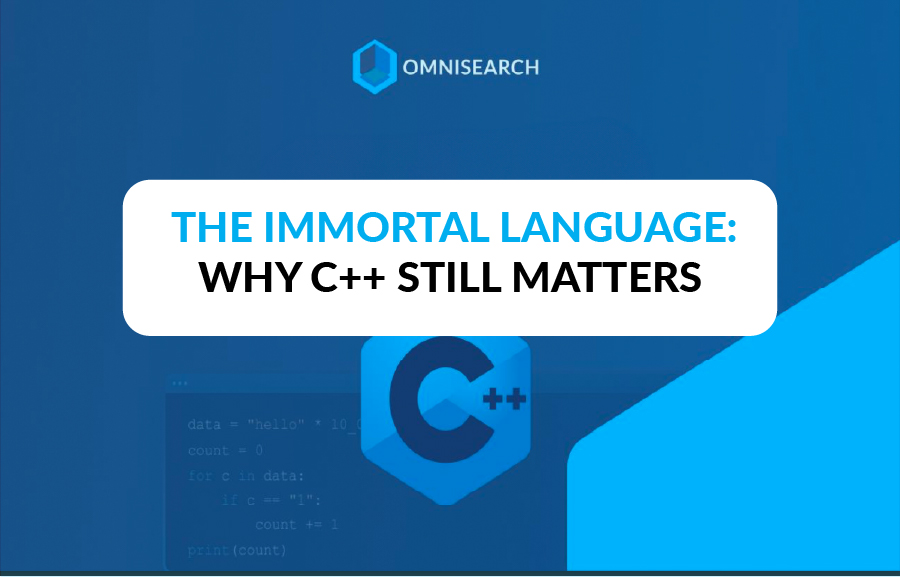FIAT/IFTA 2025: Archives Meet AI at Cinecittà Studios

Patricia Butina
Marketing Specialist
Published:
November 11, 2025
Topic:
Insights

The FIAT/IFTA World Conference 2025 brought together hundreds of archivists, media managers, and preservation experts from more than 65 countries at the historic Cinecittà Studios in Rome. As a silver sponsor, Omnisearch was proud to be part of the conversation, sharing our technology and learning from some of the brightest minds in the archiving world.

The Urgency of Preservation
Preserving audiovisual heritage is no longer a theoretical concern. Film reels degrade, tapes lose magnetism, and even digital files risk obsolescence. Around the world, archives are racing to digitize their collections before time and technology move on.
At the same time, a new challenge is emerging. As much of the world’s content becomes “born digital,” archivists must not only store it but also ensure it can be accessed, verified, and understood for decades to come.

Trends Shaping the Archive World
AI-Powered Metadata and Search
Artificial intelligence is changing how archives operate. AI can now transcribe audio, recognize objects and faces, and automatically describe scenes. What once took days of manual cataloging can now be done in minutes. This automation is freeing archivists to focus on curation and storytelling instead of repetitive tagging.
Authenticity in the Age of Deepfakes
With AI capable of creating hyper-realistic images and cloned voices, authenticity has become a new frontier. Archives are taking a leading role in preserving verified, original materials that can serve as a factual counterweight to manipulated media. Many institutions are now exploring digital provenance tools and AI-powered verification systems to ensure trust in what we see and hear.
Digital-First Preservation
As archives move past physical media, preservation now focuses on maintaining digital files as technology evolves. Machine learning tools are helping to restore damaged or low-quality footage, enhancing old materials faster than ever. This blend of technology and expertise ensures that history remains vivid, accurate, and accessible.
Speed and Accessibility
In 2025, speed is everything. Broadcasters and researchers need instant access to decades of footage, and new AI search tools are delivering just that. Instead of relying on manual tags, modern systems index every word, face, and scene within videos. A producer can now find the exact moment a topic or person appears in seconds.
Multilingual and Global Access
Archives are global by nature. The latest AI transcription tools now support dozens of languages, breaking down barriers that once limited accessibility. Whether content is in Italian, Arabic, or Korean, it can now be indexed, translated, and searched seamlessly. This evolution is making archives more inclusive and globally relevant than ever before.
The Omnisearch Advantage
At FIAT/IFTA 2025, Omnisearch showcased how its AI-driven search platform aligns perfectly with these emerging trends. Our technology helps archivists manage vast media collections with unmatched speed, accuracy, and intelligence.

Lightning-Fast AI Search
Omnisearch’s proprietary machine learning models index video, audio, and text with precision and speed, delivering results up to ten times faster than traditional systems. Archivists can find the exact clip, phrase, or visual they need instantly, even within petabytes of data.
Multilingual Intelligence
Supporting 27 languages, Omnisearch allows archivists to search and cross-reference materials from around the world. Users can enter a keyword in English and retrieve results in other languages, bridging gaps in international archives.
Automatic Metadata Creation
Omnisearch automatically generates rich metadata by transcribing dialogue, identifying people, objects, and brands, and describing scenes. An hour of footage can be processed and tagged within minutes, transforming hidden collections into searchable, accessible archives.
Logo Detection and Scene Description
Our platform detects specific logos or visual elements across entire video libraries, providing detailed time-stamped reports. It can also describe scenevistss such as “studio interview” or “crowd at night,” making visual content searchable by context, not just keywords.
Archivists at the conference described Omnisearch as offering “sniper accuracy,” and it’s a description we proudly embrace. The goal is straightforward: to empower archivists to find exactly what they need, when they need it.
Looking Ahead
The FIAT/IFTA conference reaffirmed what many already know: archives are not relics of the past, but vital institutions shaping the future. They are adapting, innovating, and leading the charge in how society preserves and interacts with truth.
For Omnisearch, it was an honor to stand among the world’s leading archivists at Cinecittà Studios. Every conversation and demo reinforced our mission: to make archives faster, smarter, and more accessible.
In a time when “everything is possible,” we believe archivists, empowered by AI, will ensure that truth and history remain within reach. With tools like Omnisearch, the past is not just preserved but searchable, accessible, and alive.






